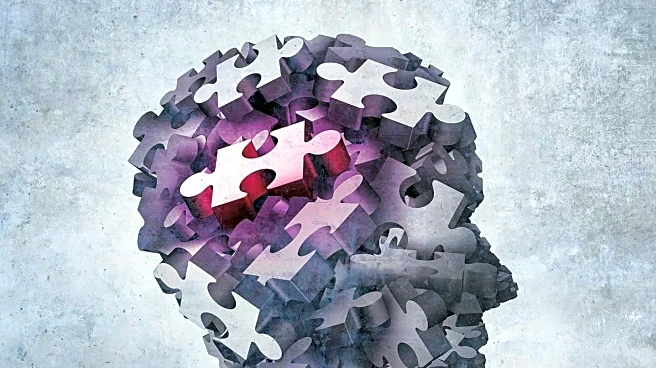What's Happening?
Chronic stress has been identified as a factor that can prematurely shrink the brain, particularly affecting areas responsible for emotion and memory. The hormone cortisol, released during stress, initially
enhances memory and alertness but can become harmful when experienced continuously. Prolonged exposure to cortisol can lead to the death of brain cells, shrinking the amygdala and hippocampus, which are crucial for processing emotions and memory function. This can result in depression, anxiety, and memory loss.
Why It's Important?
The link between stress and brain health underscores the need for effective stress management strategies to prevent cognitive decline. As stress is a common aspect of modern life, understanding its impact on the brain can inform public health policies and individual practices aimed at reducing stress-related health issues. Addressing chronic stress can improve mental health outcomes and enhance overall well-being.
What's Next?
Individuals are encouraged to adopt stress-reducing practices such as regular exercise, meditation, and maintaining strong social connections. Healthcare providers may offer cognitive behavioral therapy to help patients manage stress and its effects on the brain. Further research into stress and brain health could lead to new interventions and therapies to mitigate the impact of chronic stress.








